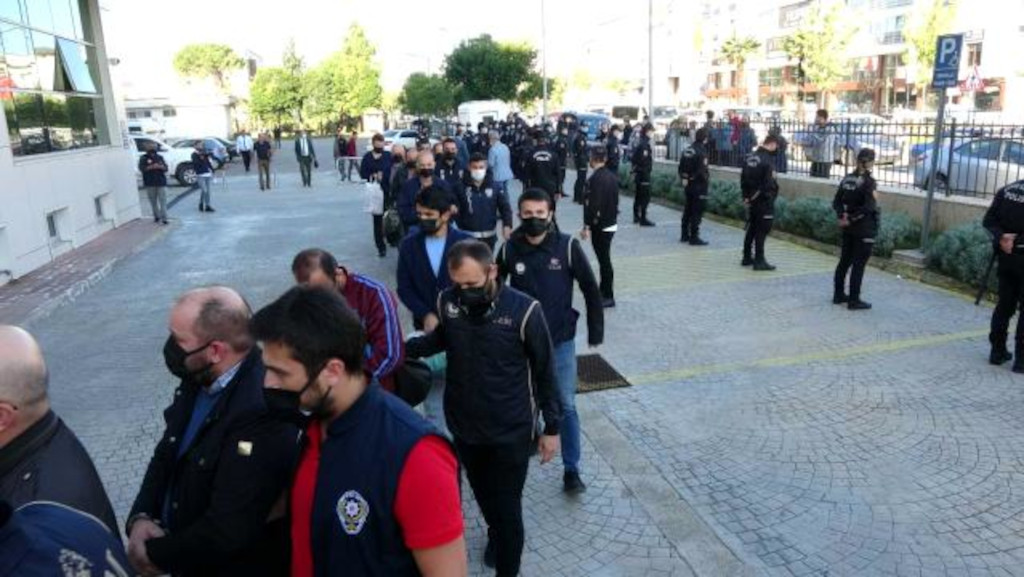The European Court of Human Rights (ECtHR) has ruled that the pretrial detention of 314 people after a failed coup against Turkish President Recep Tayyip Erdoğan in July 2016 lacked grounds that could constitute reasonable suspicion.
The ECtHR issued its ruling in the case of Duymaz and others v. Türkiye on Tuesday. The court had decided to merge the applications filed by 314 people under a single judgment due to the similar subject matter of the applications.
The applicants had been arrested as part of a mass crackdown on the faith-based Gülen movement, inspired by Turkish cleric Fethullah Gülen, whom the president blames for the failed coup. Gülen and the movement deny any involvement.
The Strasbourg-based court said the grounds for their detention were “not of a nature” to constitute “reasonable suspicion” and ordered Ankara to pay 5,000 euros in non-pecuniary damages and for costs and expenses to 299 of the applicants. The remaining 15 applicants did not request compensation.
Jailed TRT journalist among applicants

Among the 314 applicants was Ali Ahmet Böken, a veteran Turkish journalist and prominent anchor who used to work for public broadcaster Turkish Radio and Television (TRT) and who has been in prison over alleged links to the Gülen movement since August 2016.
In April 2018 Böken was convicted on terrorism charges due to his alleged affiliation with the Gülen movement and sentenced to almost 10 years’ imprisonment. His conviction was based on such evidences as using the ByLock messaging app, a charge denied by Böken; having an account at the now-closed Bank Asya, one of Turkey’s largest commercial banks at the time; and sending his children to Gülen movement-affiliated schools.
Purged academic’s rights violated

The ECtHR also found a rights violation in the pretrial detention of Vedat Demir, a professor of communications who was arrested following the coup attempt due to his alleged links to the Gülen movement.
Demir, who is currently living in exile in Germany, was put in pretrial detention in the massive crackdown launched after the coup attempt and was subsequently fired from his post at İstanbul University.
The academic was publicly targeted by pro-government journalist Cem Küçük on X, several days after the coup attempt.
Küçük said he knows Demir in person and that he is a member of “Fetö,” a term coined by the Turkish government to refer to the Gülen movement as a terrorist organization, and called for his arrest.
“I had been targeted by the ‘guardians of the regime’ just because I defended democracy, the rule of law and freedom of the press and did not think like them,” the professor told Bold Medya following the ECtHR decision.
Demir, who now teaches at the Free University of Berlin, spent almost seven months in pretrial detention in İstanbul. He had to flee Turkey like of dozens of other academics to avoid government persecution.
Tuesday’s ruling is the latest by the ECtHR against Turkey, a member since 1950 of the Council of Europe, of which the court is a part. It said the detentions had violated Article 5 of the European Convention on Human Rights, which the court enforces, “on account of the lack of reasonable suspicion, at the time of the applicants’ initial pre-trial detention, that they had committed an offence.”
Following the abortive putsch, the Turkish government declared a state of emergency and carried out a massive purge of state institutions under the pretext of an anti-coup fight. More than 130,000 public servants, including 4,156 judges and prosecutors, as well as 29,444 members of the armed forces, were summarily removed from their jobs for alleged membership in or relationships with “terrorist organizations” by emergency decree-laws subject to neither judicial nor parliamentary scrutiny.
The ECtHR said, based on the court documents, that a majority of the applicants were identified as users of the ByLock messaging app. Some were suspected of being affiliated with the Gülen movement based on witness statements or having accounts at the Gülen-linked Bank Asya and some due to possession of Gülen-affiliated publications and/or United States one-dollar bills with an “F” serial number (denoting the initial of the first name “Fetullah”), while others were suspected due to their employment by and/or membership in Gülen-linked institutions and organizations.
Following the coup attempt, the Turkish government accepted such activities as having an account at the Bank Asya; using the ByLock messaging application, which was available on Apple’s App Store and Google Play; and subscribing to the Zaman daily or other publications affiliated with members of the movement as benchmarks for identifying and arresting alleged followers of the Gülen movement on charges of membership in a terrorist organization.
However, the ECtHR has on many occasions made clear that such activities are insufficient to prove that someone has committed a crime.
For instance, in a landmark ruling, the Grand Chamber of the ECtHR last September found the use of ByLock not to constitute a criminal offense. The Grand Chamber ruled in the case of former teacher Yüksel Yalçınkaya that the use of the ByLock application is not an offense in itself and does not constitute sufficient evidence for an arrest.
ByLock, once widely available online, has been considered a secret tool of communication among supporters of the faith-based Gülen movement since the coup attempt on July 15, 2016 despite the lack of any evidence that ByLock messages were related to the abortive putsch.
The Strasbourg court also ruled in other cases that the use of ByLock or having an account at Bank Asya do not constitute criminal offenses.
Turkish authorities continue their crackdown on followers of the Gülen movement and continue to deem the above-mentioned activities as evidence of a crime.
Interior Minister Ali Yerlikaya announced at a press briefing earlier this month that since June 2023, Turkish police have carried out 5,543 operations and that 1,595 people have been arrested as part of the government’s ongoing crackdown on the Gülen movement.

